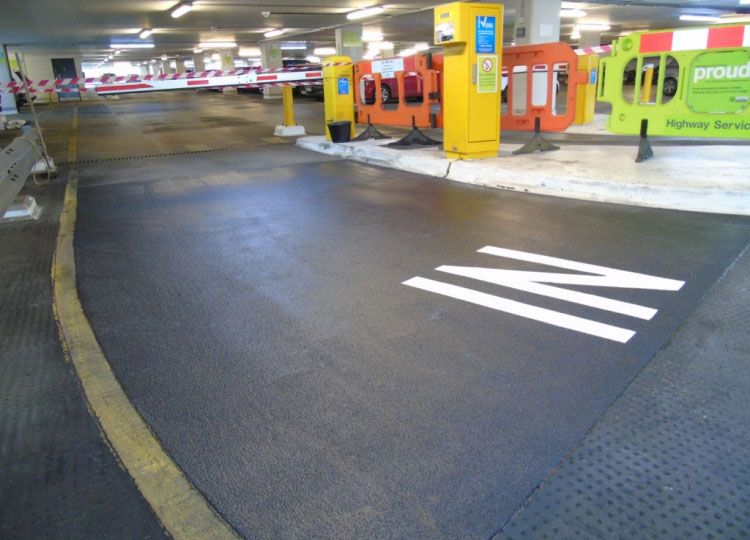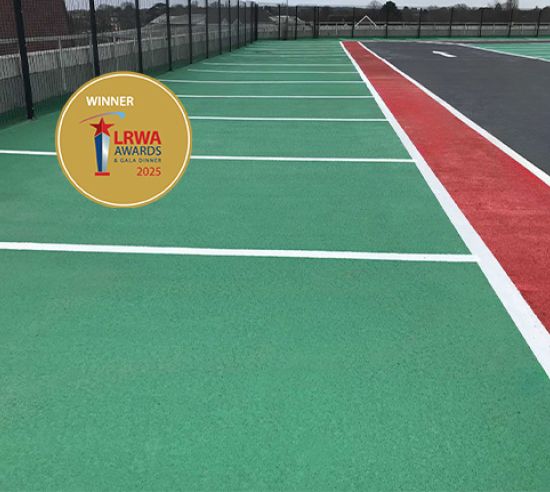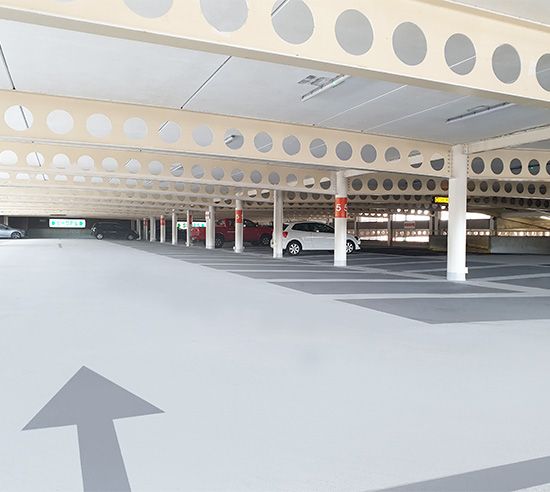The challenge
Vehicles rolling along car park surfaces generate an electrostatic charge. In the majority of cases, this electrostatic charge will dissipate quickly, however in certain cases, where the car park surface has high electrical resistance, such as traditional asphalt build-ups, the charge can remain for a period of time. If a driver then touches an earthed metal object (e.g. ticket machine), they can receive a static electric shock. You can find out more here
As moisture helps to avoid a static charge building and accelerates dissipation, the car park operators at Trinity Square had previously used a perforated hosepipe at the top of the ramp, to drip water down the incline. This method is relatively common but can create slip resistance, and water ingress issues below.
The solution
The system specified to solve this problem was Triflex DeckFloor Anti-Static, a conductive waterproofing and surfacing system. Following preparation of the substrate, a copper pad was adhered to the asphalt to the entrance area, with the earth wire installed into newly cut chases in the kerb. The totally cold applied Triflex Cryl Paste was used to seal the case and protect the cable.
Work then started to apply the Triflex DeckFloor Anti-Static system; the surface was primed using Triflex specialist conductive primer, followed by the application of a conductive resin, conductive aggregate. and conductive finish. The totally waterproof system is anti-skid, while, most importantly, effectively dissipating any static charge build-up.
The entire system is totally cold applied, which ensured no risk of fire during application. Due to the exceptionally fast curing times of the system, the project was completed overnight, which minimised disruption to the busy city centre car park.
Triflex DeckFloor Anti-Static has been successful in solving the issue with static charge build-up encountered at Trinity Square Car Park and numerous other car parks, resulting in a significant improvement to the user experience.










